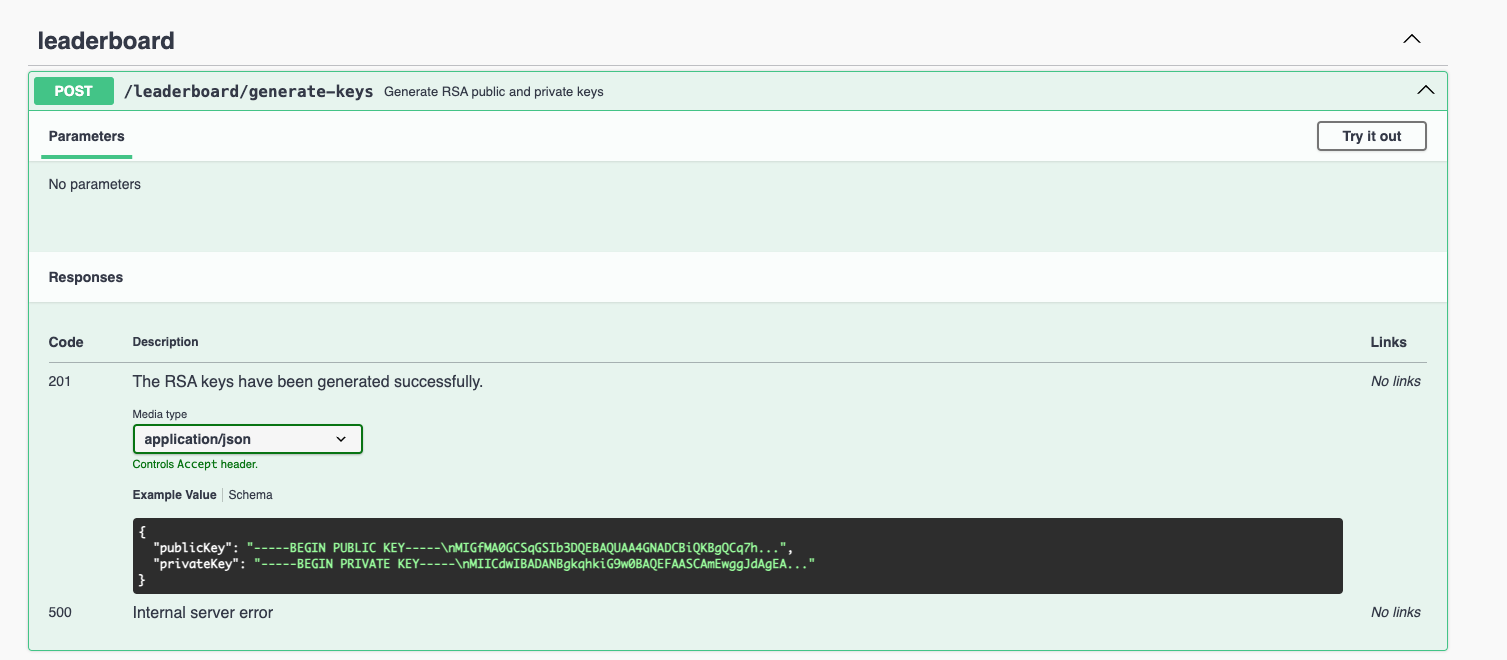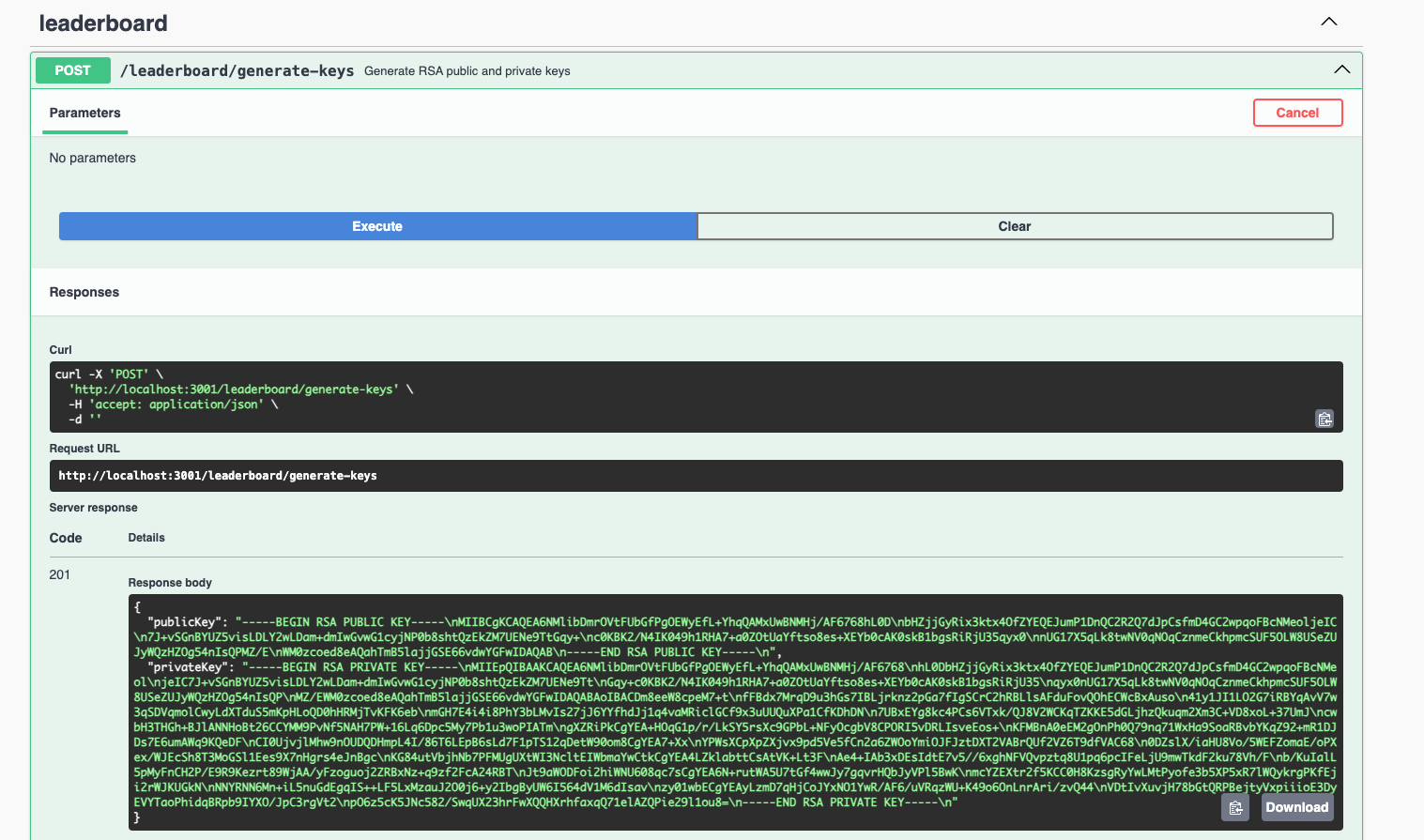Game Service Setup Guide
If you do not have game services set up yet, you can clone the game service template and complete the setup using the instructions below.
The template is built using the NestJS framework. To get started, follow these steps:
Step 1. Install Dependencies
To install the necessary dependencies, use one of the following commands:
yarn
or if using npm:
npm install
Step 2. Configure the Database
After installing dependencies, set up the database using PostgreSQL. Define the following environment variables in your .env file to configure the database connection:
Example:
DB_TYPE=postgres
DB_HOST=127.0.0.1
DB_PORT=5432
DB_USERNAME=postgres
DB_PASSWORD=postgres
DB_DATABASE=local-database-test
Step 3. Fill in the Environment Variables
In your initial setup, you can set the PUBLIC_RSA_KEY and PRIVATE_RSA_KEY to N/A so that the service can start:
PUBLIC_RSA_KEY=N/A
PRIVATE_RSA_KEY=N/A
DEVELOPER_API_KEY="YOUR_DEVELOPER_API_KEY"
Step 4. Run the service
Once your environment variables are set, run the following command to start the service in development mode:
yarn start:dev
or if using npm:
npm run dev
Step 5. Access the swagger in local server.
After the service starts successfully, you can access the Swagger documentation at:
http://localhost:3001/documentation
There should have full list of setup API for interact with Unity client
Step 6. Generate RSA Key Pairs
From here, you can use the leaderboards/generate-keys endpoint to generate your RSA public and private keys.
Example Link: http://localhost:3001/documentation#/leaderboard/LeaderboardController_generateRSAKeys
Example :
- Endpoint for generate RSA Key pairs.

- Generate RSA Keypair though local endpoint.

Step 7. Update the Environment with RSA Keys
Once the RSA key pairs are generated, update your .env file with the following:
PUBLIC_RSA_KEY=your_generated_public_key
PRIVATE_RSA_KEY=your_generated_private_key
Put the Developer API Key in the .env file.
DEVELOPER_API_KEY=Your_developer_api_key
Step 8. Configure Unity Client
Ensure that you configure the Myria Leaderboard SDK in Unity by passing the PUBLIC_RSA_KEY in the SDK config to enable secure communication with the backend.
By following these steps, your backend service should be successfully set up and ready to integrate with your Unity game.